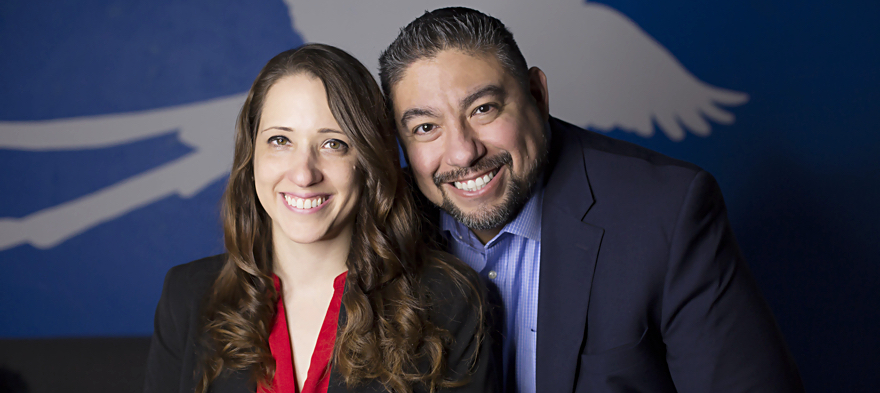
Nov 19, 2020 12:00:00 AM
What would happen if you sat a group of parents down and asked them, “In an ideal world, what would education look like for our children?” On Tuesday, December 1, you can find out all about it during an EdPalooza session with Robert Ruiz, father of four, strong advocate for educational equity and co-founder of Heritage Academy.
But here’s a taste.
[pullquote]Even amid the pandemic, a group of Latinx families in Oklahoma City are discovering a new way of learning.[/pullquote] Led by Ruiz, they designed their own school in partnership with Epic Charter Schools, Oklahoma’s largest charter network. Heritage Academy launched last June and already has 172 students enrolled.
Launching in the middle of the pandemic turned out to be a good move for families whose kids had received little attention last spring. “There was not much going for these families from district remote learning. They told us last spring was a big nothingburger,” said Ruiz. “Now, having these kids in a virtual learning model that has been developing for 10 years, that’s a totally different thing. I can’t wait until we get results from end-of-the-year testing to see how much they’ve grown.”
Parents designed Heritage Academy with unique features to make sure it would serve their children well. All the teachers are bilingual in English and Spanish, and most are certified in special education. “Just the fact that teachers are bilingual is huge for success,” Ruiz noted. “[pullquote position="right"]This is the first time many families have been able to communicate with their children’s teachers.[/pullquote] Now they can engage at a much higher level.”
Teachers are also building strong bonds with families by teaching across grade levels and subjects. “They can teach all four kids in a family, and progress with them from year to year,” Ruiz said. “Teachers create an individualized learning plan for each student.”
Though it’s too early to have hard data, students’ response to their new school—”this is way more work than we’ve gotten in any of our other schools”—suggests they are learning much more than they were. “For so long, their districts have asked nothing of them,” said Ruiz. “Many of them were working hard for the first time.”
Maureen Kelleher is Editorial Director at Future Ed. She was formerly Editorial Partner at Ed Post and is a veteran education reporter, a former high school English teacher, and also the proud mom of an elementary student in Chicago Public Schools. Her work has been published across the education world, from Education Week to the Center for American Progress. Between 1998 and 2006 she was an associate editor at Catalyst Chicago, the go-to magazine covering Chicago’s public schools. There, her reporting won awards from the Annie E. Casey Foundation, the International Reading Association and the Society for Professional Journalists.
The story you tell yourself about your own math ability tends to become true. This isn’t some Oprah aphorism about attracting what you want from the universe. Well, I guess it kind of is, but...
If you have a child with disabilities, you’re not alone: According to the latest data, over 7 million American schoolchildren — 14% of all students ages 3-21 — are classified as eligible for special...
The fight for educational equity has never been just about schools. The real North Star for this work is providing opportunities for each child to thrive into adulthood. This means that our advocacy...
Your donations support the voices who challenge decision makers to provide the learning opportunities all children need to thrive.
Ed Post is the flagship website platform of brightbeam, a 501(c3) network of education activists and influencers demanding a better education and a brighter future for every child.
© 2020–2024 brightbeam. All rights reserved.
Leave a Comment